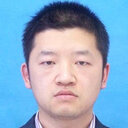Traditional medicine in the treatment of drug addiction.
Từ khóa
trừu tượng
OBJECTIVE
To evaluate clinical trials and neurochemical mechanisms of the action of traditional herbal remedies and acupuncture for treating drug addiction.
METHODS
We used computerized literature searches in English and Chinese and examined texts written before these computerized databases existed. We used search terms of treatment and neurobiology of herbal medicines, and acupuncture for drug abuse and dependence.
RESULTS
Acupuncture showed evidence for clinical efficacy and relevant neurobiological mechanisms in opiate withdrawal, but it showed poor efficacy for alcohol and nicotine withdrawal or relapse prevention, and no large studies supported its efficacy for cocaine in well-designed clinical trials. Clinical trials were rare for herbal remedies. Radix Puerariae showed the most promising efficacy for alcoholism by acting through daidzin, which inhibits mitocochondrial aldehyde dehydrogenase 2 and leads to disulfiram-like alcohol reactions. Peyote also has some evidence for alcoholism treatment among Native Americans. Ginseng and Kava lack efficacy data in addictions, and Kava can be hepatotoxic. Thunbergia laurifolia can protect against alcoholic liver toxicity. Withania somnifera and Salvia miltiorrhiza have no efficacy data, but can reduce morphine tolerance and alcohol intake, respectively, in animal models.
CONCLUSIONS
Traditional herbal treatments can compliment pharmacotherapies for drug withdrawal and possibly relapse prevention with less expense and perhaps fewer side effects with notable exceptions. Both acupuncture and herbal treatments need testing as adjuncts to reduce doses and durations of standard pharmacotherapies.




